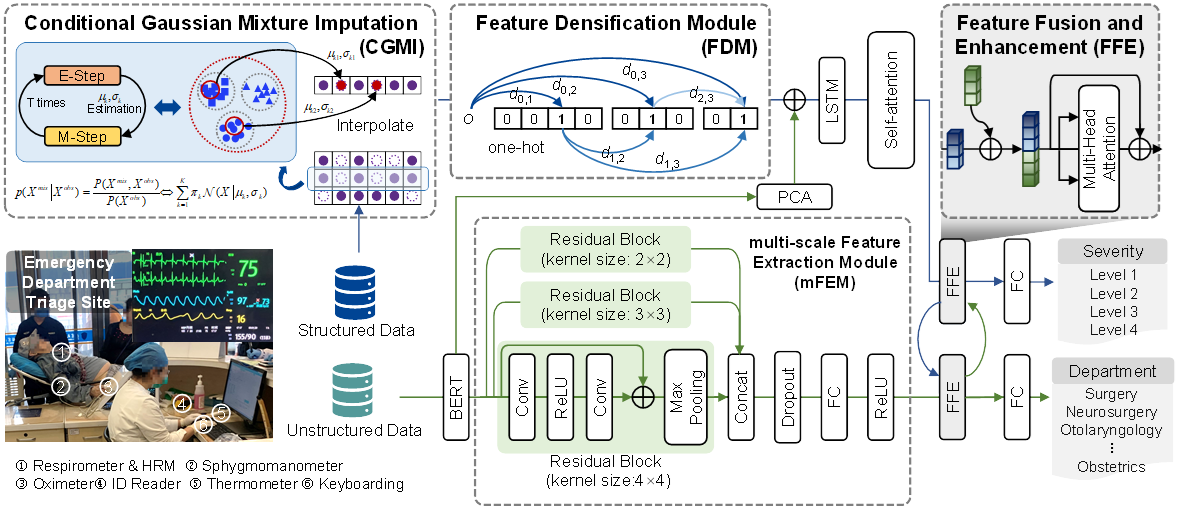Recently, the 28th International Conference on Medical Image Computing and Computer-Assisted Intervention (MICCAI) has accepted the paper titled “A Novel ED Triage Framework Using Conditional Imputation, Multi-Scale Semantic Learning, and Cross-Modal Fusion,” The work, led by Prof. Jun Zhang’s team at the State Key Laboratory of Digital Medical Engineering, School of Instrument Science and Engineering, Southeast University, proposes an AI framework specifically designed to addresses core challenges that missing clinical data, feature sparsity, and modality heterogeneity, thereby improving the robustness and clinical applicability of triage decisions. For context, MICCAI’25 received 3,677 submissions for this edition and accepted 1,014 papers (29%).
Triage in emergency departments requires a rapid and reliable assessment of patient severity, as well as the allocation of patients to the appropriate department. However, practical electronic medical records are often incomplete and sparse, challenging automated triage models. To address these issues, the team developed a cross-modal triage framework that combines three key components: (i) Conditional Gaussian Mixture Imputation: models conditional distributions to impute missing structured values robustly. (ii) Feature Densification Module: densifies sparse one-hot features by extracting correlations. (iii) Multi-scale Feature Extraction Module: captures hierarchical semantic features from patient complaints.

The framework further integrates an early fusion stage (PCA-based coarse alignment) and a late fusion stage with reverse features and cross-attention for fine-grained interaction between modalities. In benchmark experiments, the method demonstrates marked improvements: severity-level prediction achieved 84.83% sensitivity, 85.11% specificity, and 61.42% Cohen’s Kappa; department recommendation achieved 90.89% sensitivity, 91.04% specificity, and 85.87% Kappa.
First author Yi Xiao, a PhD candidate in Professor Jun Zhang’s group, led the work; Chi Cheng and Chunyu Wang (Peking University People’s Hospital) are gratefully acknowledged for their support. Southeast University is listed as the first and corresponding affiliation, and the study was funded by the National Natural Science Foundation of China and the Fundamental Research Funds for the Central Universities.


